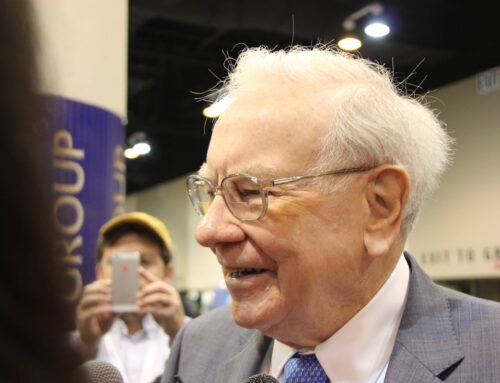My dad’s wealth manager put my entire $50K in savings into one investment. Is he setting me up for disaster?
March 30, 2025
The benefit of hiring someone to manage your money is getting expert investment advice that protects your portfolio from market volatility while fueling its growth. But, what if you’re paying for advice you don’t agree with?
Say you’ve decided to use your father’s wealth manager to oversee your own money, only they decide to put your entire portfolio into a single investment. That may seem like a suboptimal choice. And it could be a risky bet.
-
I’m 49 years old and have nothing saved for retirement — what should I do? Don’t panic. Here are 5 of the easiest ways you can catch up (and fast)
-
Nervous about the stock market in 2025? Find out how you can access this $1B private real estate fund (with as little as $10)
-
Americans with upside-down car loans owe more money than ever before — and drivers can’t keep up. Here are 3 ways to cut your monthly costs ASAP
So it’s important to keep tabs on your portfolio, even if you’re paying someone else to do the work. And it’s equally important to make sure your investments are diversified.
Whether this one investment of yours poses a risk depends on whether it’s truly a single asset, like bitcoin or a particular stock, or is something like an index fund or mutual fund or exchange-traded fund (ETF), which are actually bundles of many individual assets. An S&P 500 ETF, like the Vanguard S&P 500 ETF (VOO), for example, would contain exposure to hundreds of blue-chip U.S. companies.
If a single fund matches your investing strategy, risk tolerance and time horizon, then that’s fine.
Investing in only a single stock, on the other hand, even one with a storied history, can carry significant risk or volatility.
The stock market has a long history of being volatile. Since 1929, it’s undergone 56 corrections where it lost at least 10% but less than 20% of its value. Plus, of those 56 corrections, 22 became bear markets where stocks lost 20% of their value or more.
When the market tanks on a whole, even a well-diversified portfolio can lose value. But if you’re not diversified and a specific sector of the market takes a hit, your personal losses could end up being significant.
Granted, you don’t officially lose money in the stock market until you actually go out and sell assets at a loss. But, you never know when you might need to tap your portfolio to address a need for cash.
An estimated 42% of Americans do not have an emergency fund they can access to cover unplanned expenses, according to U.S. News & World Report. So even if your preference is to leave your portfolio alone during a market downturn, if you lose your job and have no emergency savings, you might have to liquidate some assets immediately. With a more diversified portfolio, you may end up with some assets that haven’t lost value in a broad market crash, or haven’t lost as much value as others.
Furthermore, it’s possible for an individual stock to lose a lot of value even if the market on a whole is doing well. If you keep your entire portfolio in one stock, a significant loss in value could upend your financial plans.
Just look at Intel Corporation (INTC). The stock has lost about 48% of its value over the past year alone. Now, imagine you had a $100,000 portfolio a year ago that consisted only of Intel. At this point, your portfolio would be down to $52,000.
Read more: Are you rich enough to join the top 1%? Here’s the net worth you need to rank among America’s wealthiest — plus 2 ways to build that first-class portfolio
Your goal in investing should be to maintain a portfolio with different assets. That means dabbling in different asset classes, as well as different options within each asset class.
When we talk about asset classes, we’re referring to types of investments, such as stocks versus bonds versus real estate. It’s a good idea to have money in all of these, though the percentage should hinge on your risk tolerance and how close or far you are from retirement.
When you’re decades away from retirement, it’s a good idea to go heavy on stocks and put a smaller portion of your portfolio into bonds. When retirement gets closer, you may want to flip things around.
Real estate is something you can invest in at any time, provided you understand the risks and are willing to do the work. With physical real estate, you can make money by renting out a property or seeing its value rise over time. But, there’s also the risk of costly repairs and going months without a tenant. Plus, you have to be willing to do the work.
If you like the idea of investing in real estate for diversification, but you don’t like the idea of owning physical properties, you can look at real estate investment trusts (REITs) instead. Many trade publicly like stocks and offer generous dividends.
Meanwhile, within each asset class in your portfolio, it’s important to diversify. On the bonds side, you may want to put money into corporate bonds as well as municipal bonds for the tax benefits, such as federally tax-exempt interest payments.
On the stock side, it’s a good idea to own shares of companies across a range of market sectors. If you don’t like the idea of choosing stocks specifically, you could fill your portfolio with sector-specific ETFs, like, say, some health care ETFs, energy ETFs, tech ETFs and so forth.
You could even simplify things further by loading up on shares of a total stock market ETF like the Vanguard Total Stock Market Index Fund ETF (VTI). These types of ETFs give you exposure to the broad market, so this is the one situation where it may be okay to fill the stock portion of your portfolio with a single investment.
But remember, broad market ETFs will allow you to match the performance of the stock market at large — not beat it. If doing better is a goal of yours, then you’ll need to branch out into individual stocks. And loading up on a wide variety of them could be your ticket to long-term success.
-
Want an extra $1,300,000 when you retire? Dave Ramsey says this 7-step plan ‘works every single time’ to kill debt, get rich in America — and that ‘anyone’ can do it
-
Rich, young Americans are ditching the stormy stock market — here are the alternative assets they’re banking on instead
-
Protect your retirement savings with these 5 essential money moves — most of which you can complete in just minutes
This article provides information only and should not be construed as advice. It is provided without warranty of any kind.
Terms and Privacy Policy
Search
RECENT PRESS RELEASES
Related Post



